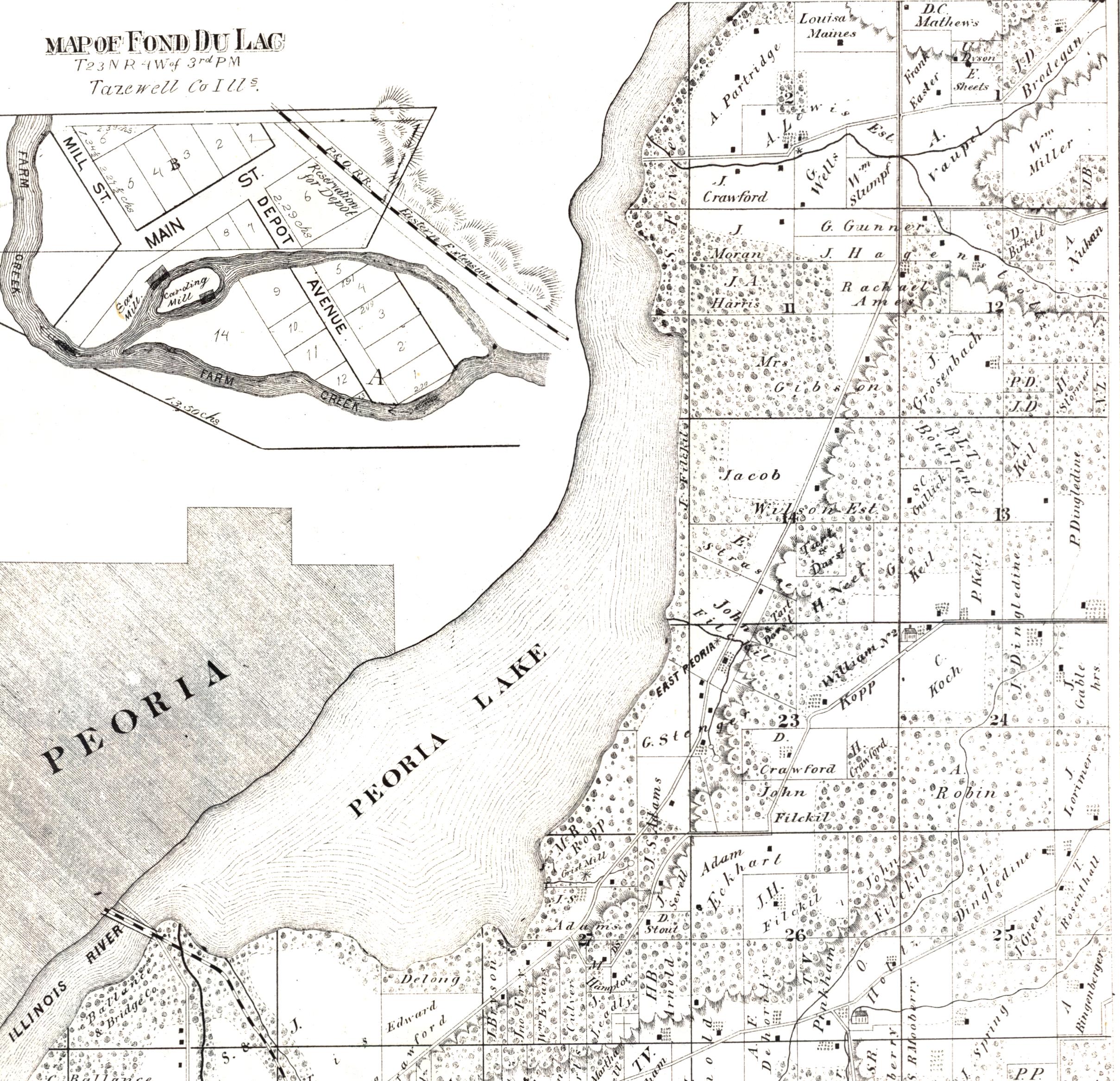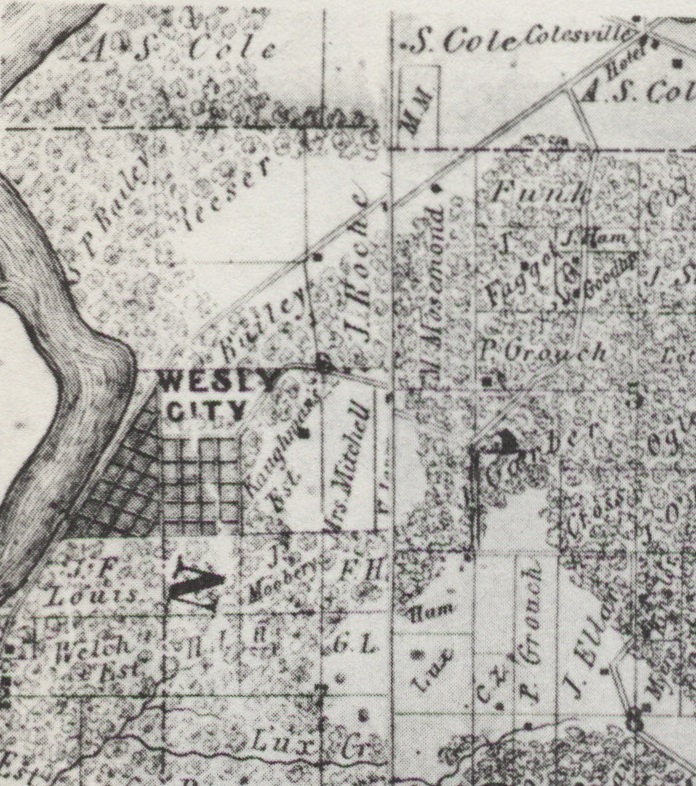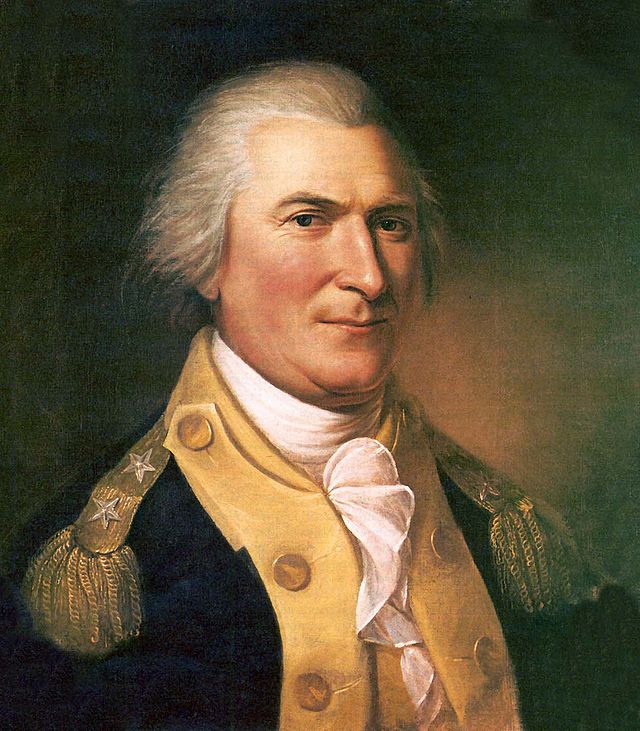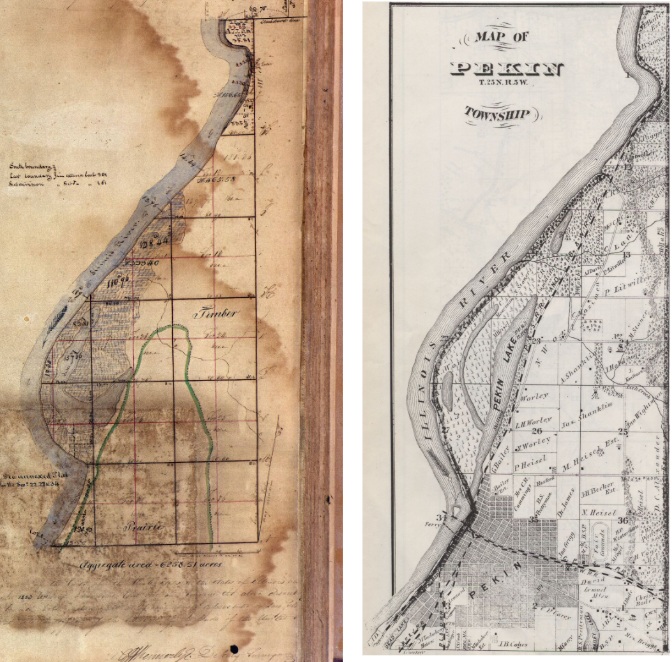This is a reprint of a “From the Local History Room” column that first appeared in October 2014 before the launch of this weblog.
As mentioned before in this column, the first Pekin city directory was published in 1861. One of the Pekin Public Library’s copies of the 1861 directory is a precious and fragile edition that was formerly owned by none other than Pekin’s own pioneer historian William H. Bates, who prepared the first formal history of Pekin for inclusion in the 1870-71 Sellers & Bates Pekin City Directory.
The pages of Bates’ copy of the 1861 directory are amply annotated in Bates’ own hand. These notes were probably added while Bates was working on later editions of the city directory. One of the notes, on page 70 of the 1861 directory, has to do with an early Pekin city official named Peter Weyhrich Sr.
On that page is a list of the directors of the Pekin and Cincinnati Union District Schools, who were elected to three-year terms. In 1861, the school directors were “Peter Weyhrich, sr.,” whose term of office was to expire in August 1861; William Stanbery, who term was to expire in August 1862; and John Haas, whose term was to expire in August 1863. A handwritten note in Bates’ copy of this directory at bottom of this page says, “Peter Weyhrich, sr., was the pioneer German settler of Pekin.”
Thus, we see that Weyhrich, who arrived in Pekin in 1831 or 1832, held the special place in Pekin’s history as the first of a great wave of German immigrants who would choose Pekin as their new home in America during the 1800s. To be sure, Weyhrich was not the only person of ethnic German descent to arrive during those earliest years of Pekin’s history, but he was the first of them who had been born in Germany. By the latter half of the 1800s, the number of German settlers in Pekin was so large that the city had more than one German-language newspaper and many businesses had signs in their windows telling people that German was spoken there.
Peter Weyhrich Sr. was born in 1806 in Hesse-Darmstadt. A biographical sketch of the life of Peter’s nephew Adam is included in the 1894 “Portrait and Biographical Record of Tazewell and Mason Counties,” on pages 565-566. The sketch says Adam’s grandfather (identified in Weyhrich family histories as Peter’s father) Jacob Weyhrich, a native of Hesse-Darmstadt, settled in Tazewell County in 1828 and was later followed by other members of his family. Peter had arrived in Pekin by 1832, but Adam didn’t emigrate until the 1850s, at or around the same time that his father Philip Weyhrich, Peter’s brother, decided to join Jacob and Peter in America.
Beginning his new life in America in Pekin, the early city directories indicate that Peter was active in the community’s life and commerce. He served as Pekin’s mayor in 1858 and 1859. Peter also took part in the formation of Pekin’s first railroad companies, according to Charles C. Chapman’s 1879 “History of Tazewell County.” Most of the Weyhrich family, however, acquired land in Sand Prairie Township to the south of Pekin. Peter died Jan. 2, 1879, and is buried in Lakeside Cemetery in Pekin.
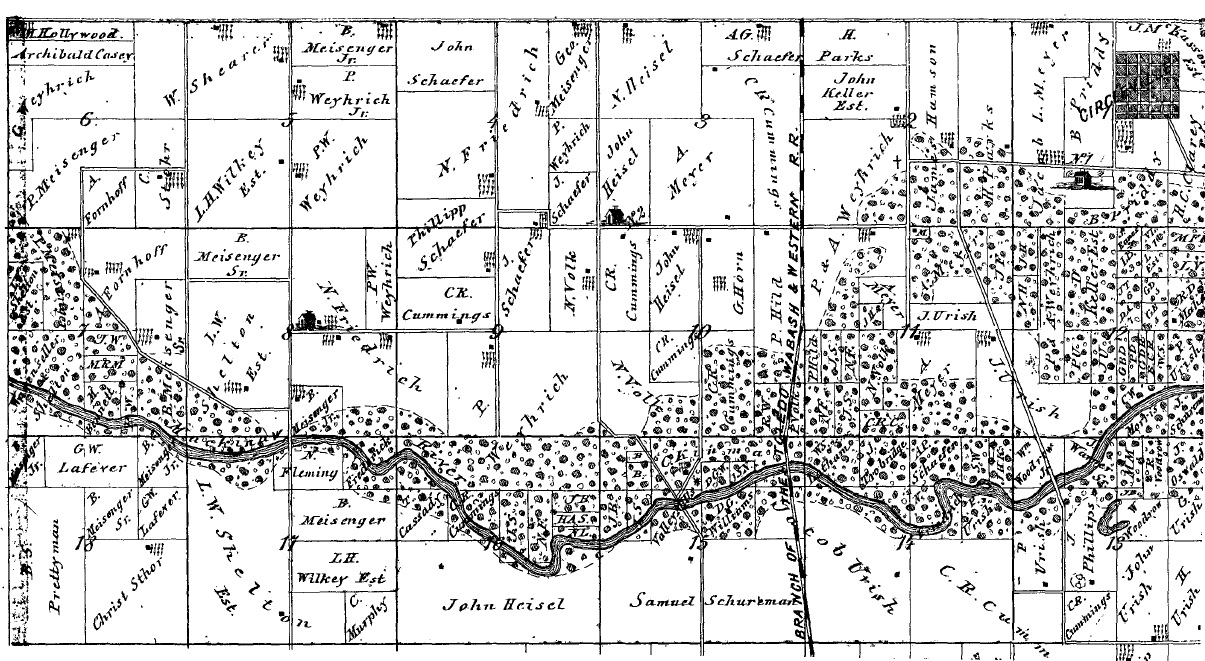
Early Tazewell County history tells of another Peter Weyhrich, but that Peter – apparently another nephew of the elder Peter – is only mentioned due to the sensational circumstances surrounding and following his death. Chapman tells the story briefly in two paragraphs on pages 298-299 of his Tazewell County history:
“Peter Weyhrich, an old resident of Sand Prairie, died very suddenly Wednesday night, June 20, 1877. The sudden death and incidents attending it caused grave suspicion of foul play. A jury was impanelled and a post-mortem examination made of the deceased, and the stomach sent to Chicago for examination, where it was decided that he came to his death by poison. Mrs. [Anna E.] Weyhrich, wife of the deceased, was arrested and tried for the murder. The case was taken from this to Logan county and tried the last week in March, 1878. States Attorney [William L.] Prettyman and J. B. Cohrs prosecuted, and Messrs. Roberts & Green defended.
“The trial was a long and tedious one, and the prisoner was found guilty and sentenced to fourteen years in the penitentiary. A motion for a new trial was made and denied, when an appeal to the Supreme Court was taken. This tribunal reversed the decision and remanded the case for a new trial, which took place in July, 1878, and resulted in her acquittal.”
As an aside, the prosecutor J. B. Cohrs is none of than Illinois State Sen. John B. Cohrs, a Pekin attorney whose life was previously treated in this space, and whose wife was active in the founding of the Ladies’ Library Assocation, predecessor of the Pekin Public Library.



